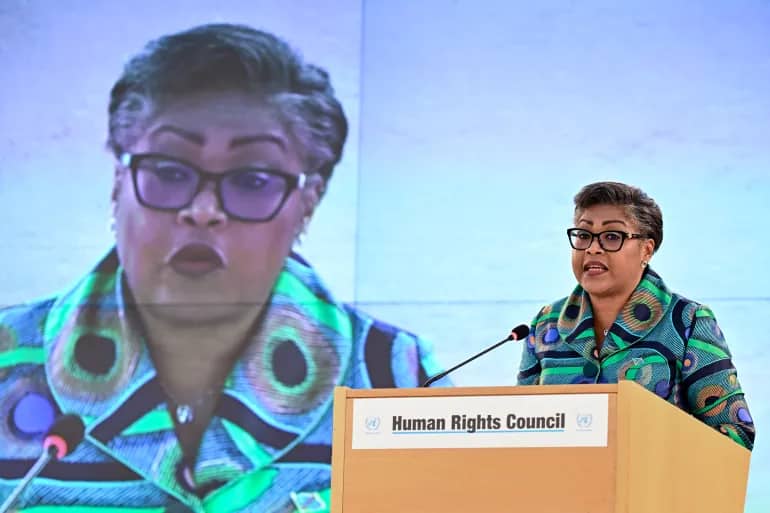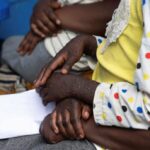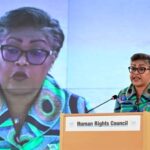The Democratic Republic of the Congo (DRC) is facing a deepening humanitarian crisis, with more than 7,000 people killed in fighting in the eastern part of the country since January, Prime Minister Judith Suminwa has revealed.
Addressing the United Nations Human Rights Council in Geneva on Monday, Suminwa described the security situation as “alarming,” with a significant number of civilians among the dead.
According to the prime minister, about 3,000 deaths have been reported in Goma, the capital of North Kivu province, while thousands of others have died across the region. More than 2,500 bodies were buried without identification, and another 1,500 remain in morgues, underscoring the scale of the devastation. Suminwa’s remarks highlight the urgency of addressing the escalating violence in the region.
The recent surge in casualties is linked to the rapid advance of the Rwanda-backed M23 rebel group, which has seized large areas of the eastern DRC, including key cities like Goma and Bukavu. The rebels have overrun government forces, forcing thousands of civilians to flee their homes and leaving communities devastated by conflict.
The humanitarian impact of the fighting has been catastrophic. Thousands of families have been displaced, with many seeking refuge in overcrowded camps with little access to food, clean water, or medical aid. Aid organizations have struggled to respond to the growing needs, warning of a worsening humanitarian disaster if urgent action is not taken.
International leaders have expressed concern over the escalating violence. UN Secretary-General Antonio Guterres recently warned that the crisis in the DRC could “push the entire region over the precipice.” The continued advance of M23 and other armed groups raises fears of a broader regional conflict, as tensions between DRC and Rwanda continue to rise.
The Congolese government has accused Rwanda of directly supporting M23 rebels, a claim that Kigali denies. The accusations have further strained relations between the two countries, complicating diplomatic efforts to find a peaceful resolution to the conflict. Meanwhile, regional and international bodies, including the African Union and the UN, are calling for an immediate ceasefire and renewed peace negotiations.
However, with these calls, the situation on the ground remains dire. Reports of human rights abuses, including mass killings and summary executions, have emerged from conflict zones. The UN and human rights organizations have urged all parties involved to uphold international humanitarian law and protect civilian populations.

With the death toll rising and the humanitarian situation deteriorating, the international community faces increasing pressure to intervene and broker peace in the DRC. As fighting continues to rage, the fate of thousands of civilians hangs in the balance, awaiting urgent action from world leaders.







